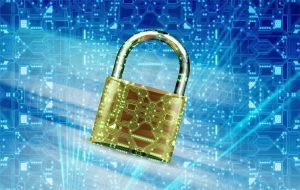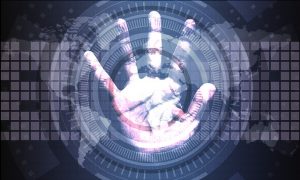When it comes to the option for professionals to work from home via the internet, the current possibilities are better than ever before. These new possibilities also bring new challenges and one of them is the of information security. This is especially the case when comes to sensitive data and employees who are working remotely/off-site for corporations. Then even more important to maintain the company’s data and information security.
Information Security via Intelligent Password Use
One basic measure for information security is to protect the computer that stores and processes the business data. In one of our previous blog posts (Safety and Security

Measures You Should Follow) we have listed several useful password tips. They concern the choice and handling of computer and account passwords to ensure the security of the company computer/mobile device. They also refer to the respective internet accounts (for example email accounts).
Access and Identity Management by the Employer
The above mentioned blog post mainly describes security measures to be taken by the individual remote worker. Beyond that, access and identities for cloud-based applications, file storage and corporate networks/intranet can be managed on the corporate side by cloud-based services like the Microsoft Azure Active Directory.
Company Server Protection
Firewall
It might seem like a rather basic thing to mention here, but because of its importance for server and information security, it certainly does belong on this list. The Firewall software helps prevent access to the system from unauthorized parties.
VPN-Connections
In comparison to Virtual Private Networks (VPN), WiFi connections are more vulnerable to hacking attacks. It enhances the server security and therefore information security if remote employees/telecommuters sign up via VPN when they need to connect their devices remotely to the company network.
SSL/TLS Certificates
SSL or TLS certificates for the company servers (HTTPS) ensure encrypted communication and verifies the other participant’s identity
You can read more about security measures to protect a server here.
Separate Business and Private Computers and Mobile Devices
To be on an even safer side, it makes sense to keep the business and private computer devices strictly separate, and not to use the computer you use for business purposes for any private internet surfing or email use. The reason for this; internet surfing and email attachments are common ways through which viruses and other malware can infect a computer.
Of course, even if a company adapted such a policy for the computers use by their employees, this would be difficult to enforce. That is why it is very important to educate the respective computer users about how to use the internet and its services, as well as, also to make sure that anti-virus programs and system are always up-to-date.
If you are interested in IT certification related to information security, cyber, and computer security, have a look at our training courses!
Sources:
https://www.entrepreneur.com/article/224241
https://smallbiztrends.com/2018/11/security-measures-for-remote-workers.html
https://www.digitalocean.com/community/tutorials/7-security-measures-to-protect-your-servers
https://techsherpas.com/7-donts-for-your-computer-security/
https://techsherpas.com/cloud-computing-makes-telecommuting-a-real-possibility/


 Let’s begin with “Information Security” and “Cybersecurity”. There are two expressions that people often use somewhat interchangeably. They are not quite the same though, as we have already
Let’s begin with “Information Security” and “Cybersecurity”. There are two expressions that people often use somewhat interchangeably. They are not quite the same though, as we have already